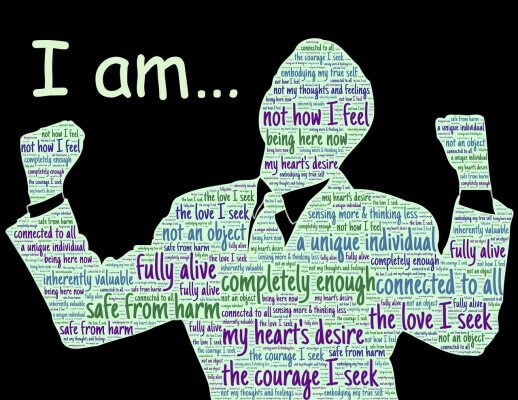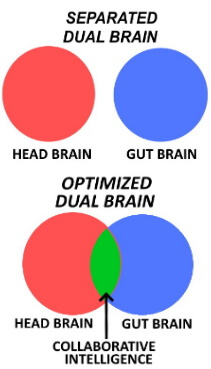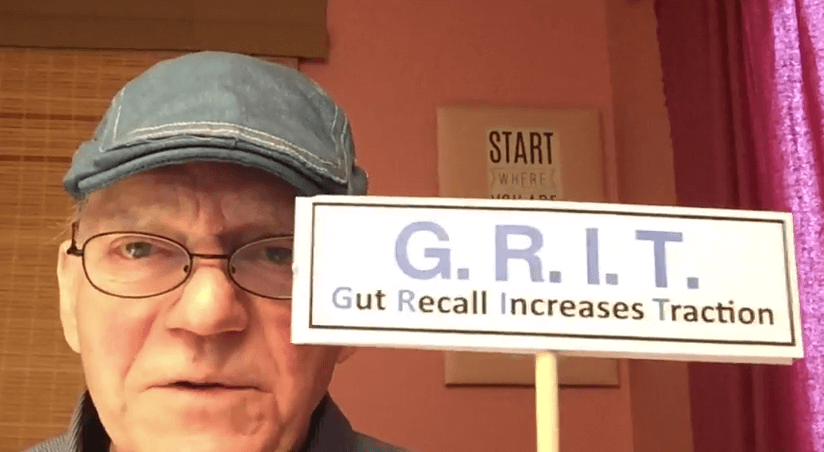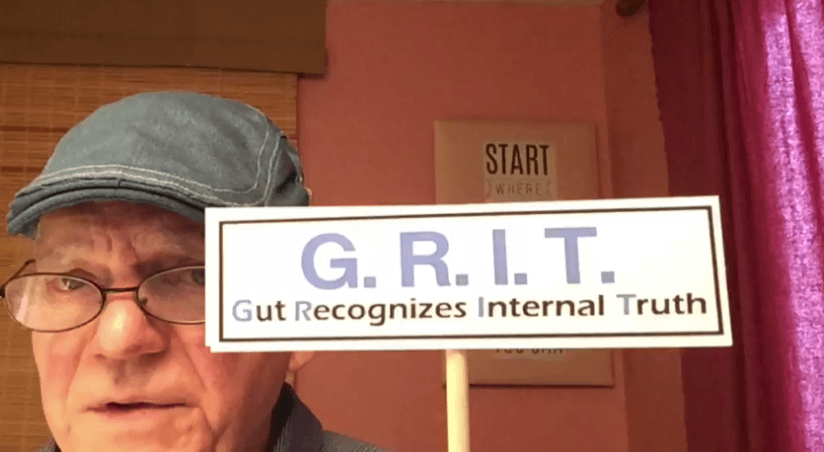
I sent a message to Steven Pressfield.
In case you don’t know who he is let me give you a quick leg up. He’s the well known author of some popular works such as the War of Art and the novel The Legend of Bagger Vance which was made into a 2000 film, starring Mat Damon and Will Smith.
I sent him a message because, on Tuesday January 7th 2025, his house of 32 years burned to the ground during the Palisades fire along with thousands of others around the Los Angeles area.
Steven has a blog where he posts a weekly feature called “Writing Wednesdays”. The fire that took his house was on Tuesday January 7th. He published his post as usual on the following day, Wednesday Jan 8th. I gotta say, that’s both impressive and inspiring. His post was about (are you ready for it?) “Belief in all aspects of yourself”.
Adversity can become your reality any minute of every day. Overcoming it is the task we must all be ready to fully enguage if we’re going to survive.
I think that’s how Steven saw his main job that fateful day back in January. A terrific model for those of us who struggle with the sort of tough stuff that ties to kill our efforts to accomplish a goal.
I’m just now finishing up my first book the main subject of which is the calming powers of “self-belief”. In finishing this book I’m about to tell the world that I’ve got a brand new way on how to quickly establish your self-belief in a little as a weekend of time. So, here I am, a first-time author writing to this very famous author to tell him about it.
I know he’s a busy guy so this message probably will go to Nowheresville. But, I’m not asking for anything so what have I got to loose?
Here’s the full message:
Steven, I’ve been a subscriber of yours for a few years now and have enjoyed reading your posts. Sad to learn of the loss you’ve suffered in that fire. But I’m inspired by how you continued to publish your weekly Writing Wednesdays posts.
Amazing!
I just read your latest blog with the main subject of belief in one’s self. I must say you’ve nailed it beautifully. I’ve noticed that people like yourself, Sir Anthony, and so many others, are dedicated to the work of encouraging the success of others. Good on you all.
But I see a problem, and I’d like to offer a simple solution.
The problem is one of retention. With encouraging motivational content, no matter how delivered, seems to have a short shelf life. It’s too often interrupted by the next trauma in the receiver’s life. The motivational uplift tends to return to a flat line or may even dip lower from to the place it was before.
That happens because the source of the change, as you yourself has noted, is external to the individual. You’ve indicated that you’d prefer it was done internally. But how that’s to be done so as to be more permanent is a mystery. I believe that the problem is that the messaging is having trouble holding ground in the recipient’s head brain. It’s a thought that can be over-ridden by more urgent thoughts. But what if there was a second brain that could come to the rescue?
Turns out that Dr. Michael Gershon, a leader in the field of neurogastroenterology, has shed light on a second brain located in our gut. To be clear, Dr. Gershon is not at all aware of the work that I’m doing by embracing his finding and introducing the concepts of “dual-brain optimization” or “mindset immunity”. He’s a brilliant scientist but, as such, is not given to venture outside the lines of his scientific discipline to search for an answer to an ethereal mystery.
I don’t possess anything close to your writing chops. In fact, it took me forty years to reasonably articulate the mystery I’ve discovered how to solve. But now, I’ll soon be able to offer the public an extremely positive way that can, in just over a weekend, have anyone engage in a very different online experience. One that provides irrefutable proof, with hard evidence, that they’ve been successful their entire lives.
This has shown to be so powerful that it only has to be done one time. No repeats are ever necessary. This means that not having to repeat positive affirmations, mantras, or do breath work every day will amount to huge time savings where other more productive work can be done.
In trials that I’ve done over the years participants have reported very positive subtle yet noticeable changes in how they view themselves.
I’ve been working to finish up on my first book and self-belief is a big part of what it’s about. Here’s some quick points that blend together to form the body of my discovery:
- We’re all are born with a dual brain system.
-One brain in the head that thinks things (often times too many things) but can’t actually feel anything. (No pain receptors in the cortex at all.)
– A second brain located in the gut (Enteric Nervous System – ENS) that is not designed to think anything but feels everything from our greatest joys to our deepest sorrows.
– We need two separate brains because humans do two main things every day all day: we think things and we feel things. A separate brain for each think/feel action is the most elegant system I can ever imagine. - All of self-help and psychology, although well intended, is constantly struggling to be more effective, but everything they do is predicated and focused on the mis-belief that we only have one brain located in the head. This powers them to try to get the had brain to fix itself. Hard to get a tiger to change it’s own stripes.
- If we’ve learned anything it’s that true lasting belief is established through hard evidence not conjecture or argument.
- You have clearly identified that the “resistance” is what causes us difficulty in reaching a goals. We also know that using our persistence, and never quitting, is the path to a successful conclusion that benefits ourselves or others.
-Accomplishments can build a better sense of one’s self. But, it would be an enormous help to know exactly what the true root of human perseverance is. I’ve identified it as a drive that is permanently located in our gut and that this can be revealed to the brain in the head by using my simple method just one time. - My methodology which leads participants to identify this internal drive, is to reverse-engineer a certain range of their past hard-fought successes where persistence was applied. Once identified this source can be used to raise the level of mindset immunity against the pressures that the “resistance” brings to bear. This exercise is not thought-based. It’s evidence-based.
While I’m not expecting anything of this from you, it would be great if I could discuss this with you. So many today are in desperate need to know this.
With great respect and love.
David Parsons

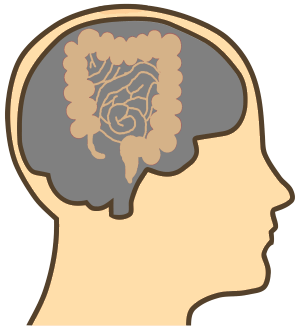
 Okay, a mother’s “don’t ever quit” advice is good advice that’s never wrong. So what else is new?
Okay, a mother’s “don’t ever quit” advice is good advice that’s never wrong. So what else is new?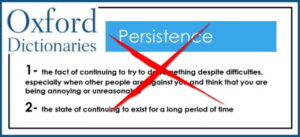 It does give a definition as far as how to use the word “persistence” in language but says nothing else. It remains a mystery as to it’s source or it’s true nature. When I look up the definition of “grit” it’s pretty much the same thing:
It does give a definition as far as how to use the word “persistence” in language but says nothing else. It remains a mystery as to it’s source or it’s true nature. When I look up the definition of “grit” it’s pretty much the same thing: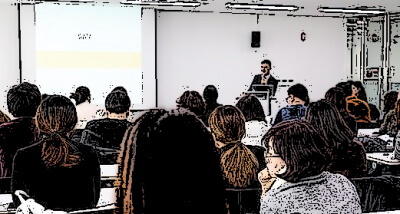
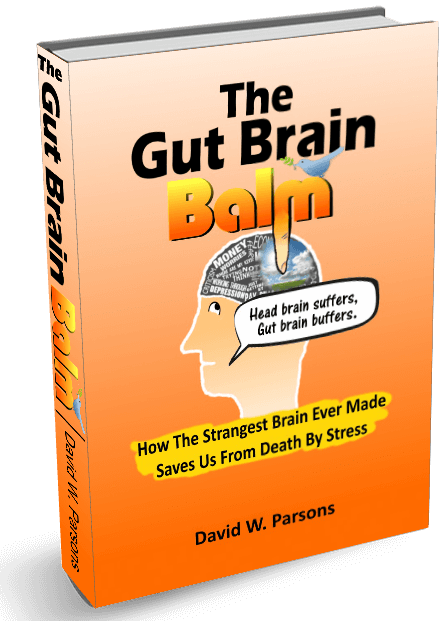 The Gut Brain Balm –
The Gut Brain Balm – 